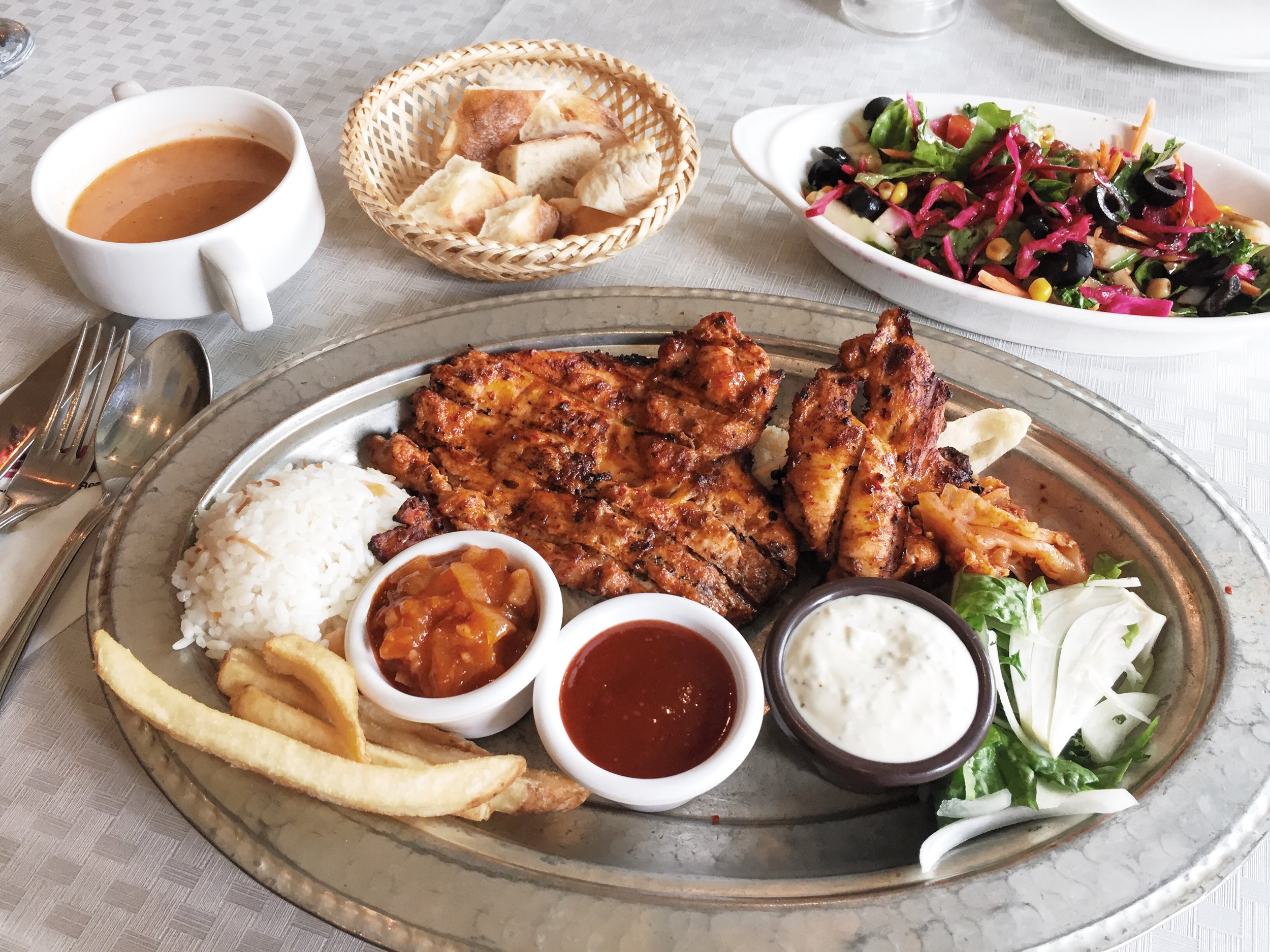Learn these 20 phrases to survive your next trip in Korea!
- 안녕하세요.
Annyeonghaseyo.
Hello.
- 저는 ______ 입니다.
Juhneun ______ ipnida.
My name is ______.
Simply fill in the blank with your name.
- 영어 하세요?
Yonguh haseyo?
Do you speak English?
- 맛있어요!
Masshissuhyo!
It’s delicious!
- 천천히 말씀해 주세요.
Chunchunhee malsseumhae juseyo.
Please talk slower.
- 지하철역 어디있어요?
Jihachulyuk uhdi issuhyo?
Where is the subway station?
Anytime you want to know where something is, fill in the blank with your desired noun:
______ 어디있어요?
______ uhdi issuhyo?
Where is the _____?
EXAMPLES:
화장실 어디있어요?
Hwajangshil uhdi issuhyo?
Where is the restroom?
버스 정류장 어디있어요?
Bbuhsseu jungryujang uhdi issuhyo?
Where is the bus station?
병원 어디있어요?
Byungwon uhdi issuhyo?
Where is the hospital?
- 도와주세요.
Dowajuseyo.
Please help me.
- 경찰에 신고해 주세요.
Gyungchalae shingohae juseyo.
Please call the police.
- 의사 필요해요.
Uisa pilyohaeyo.
I need a doctor.
- 여기 어디에요?
Yuhgi uhdiyaeyo?
Where am I?
(For details on asking for and understanding directions, check out Korean Phrases #16.)
- 지도 그려 주실 수 있어요?
Jido geuryuh jushil soo issuhyo?
Can you draw me a map?
- 택시 불러 주세요.
Tekshi bulluh juseyo.
Please call a taxi for me.
- 공항으로 가주세요.
Gonghangeuro gajuseyo.
Please take me to the airport.
But what if you want to go somewhere else? You can fill in the blank with other nouns:
_______으로 가주세요.
_______euro gajuseyo.
Please take me to _______.
- 얼마에요?
Ulma aeyo?
How much is it?
(To learn how to count Korean money, watch KWOW episode 78.)
- 계산해 주세요.
Gyesanhae juseyo.
Check, please.
- 카드 받으세요?
Kadeu badeuseyo?
Do you accept credit cards?
- 영수증 주세요.
Yongsujoong juseyo.
Please give me a receipt.
You can fill in the blank with other nouns:
______ 주세요.
______ juseyo.
Please give me ______.
EXAMPLES:
물 주세요.
Mool juseyo.
Please give me water.
반찬 더 주세요.
Banchan duh juseyo.
Please give me more side dishes.
소주 주세요.
Banchan juseyo.
Please give me soju.
- 네.
Ne.
Yes.
(“Ne” is the formal way of saying “yes.”)
- 아니요.
Aniyo.
No.
- 감사합니다.
Gamsahapnida.
Thank you.



























